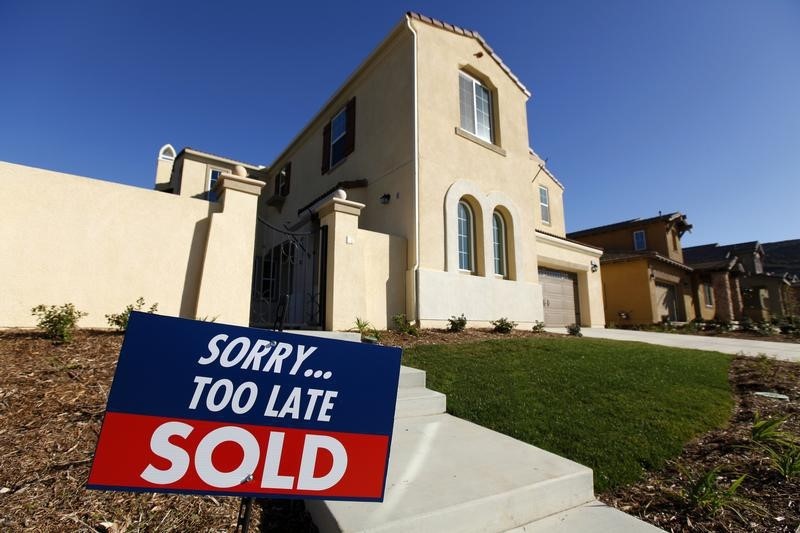(Reuters) - The number of U.S. borrowers seeking a home loan fell to a one-month low amid concerns about the growing trade tension between China and the United States and its impact on the economy, the Mortgage Bankers Association said on Wednesday.
Those worries have put downward pressure on home borrowing costs, which were not enough to rekindle interest for potential home buyers and current homeowners to shop for loans, the group said.
The Washington-based group's seasonally adjusted measure on mortgage applications for home purchase and refinancing declined by 3.3% to 411.5 in the week ended May 24. This was the lowest level since the week of April 26.
"Concerns over European economic growth and ongoing uncertainty about a trade war with China were some of the main factors that kept mortgage rates low last week," Joel Kan, MBA's associate vice president of economic and industry forecasting, said in a statement.
Interest rates on 30-year "conforming" mortgages, whose loan balance is $484,350 or less, averaged 4.33%, unchanged from the week before.
Borrowing costs for other fixed-rate loans MBA tracks fell by between 1 basis point to 6 basis points last week, while average interest rates on five-year adjustable-rate mortgages increased to 3.74% from 3.57% the previous week.
The drop in interest rates on fixed-rate mortgages was in step with bond yields which have declined on safe-haven demand tied to worries about weakening economic growth due partly on the trade spat between Beijing and Washington.
"It is possible that the trade dispute is causing potential homeowners to hold off on buying, with the fear that further escalation – or the lack of resolution – may have adverse impacts on the economy and housing market,” Kan said.
MBA's seasonally adjusted measure on mortgage activity to buy a home fell for a third straight week to 259.4, which was down 1.4% from the week before.
The group's gauge on mortgage refinancing on a seasonally adjusted basis declined by 6% to 1,255.4 last week, reversing the prior week's 8% increase.
